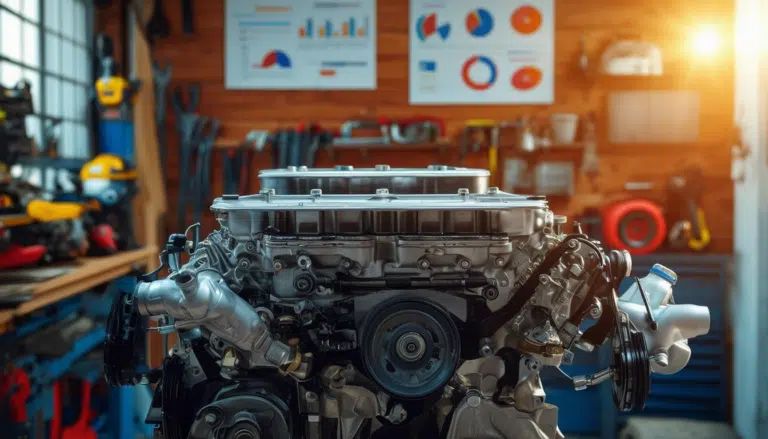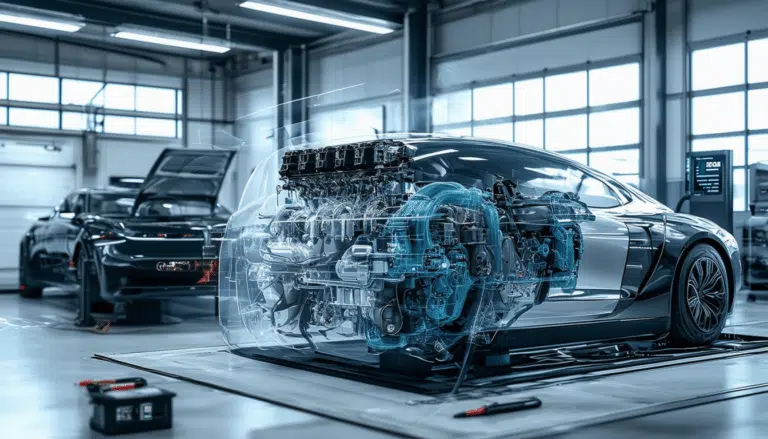Adjustments for maintenance that can make your car more efficient

Proper vehicle maintenance is key to maximizing its efficiency and extending its lifespan. With simple adjustments, engine performance can be improved, fuel consumption reduced, and costly breakdowns avoided. Keeping up with regular inspections and paying attention to details such as tire pressure, fluid levels, and oil changes are essential practices that any driver can implement. Below are some maintenance adjustments that will help your car run optimally and efficiently.
A well-maintained car is not only safer but can also be more efficient in its fuel consumption. Making proper maintenance adjustments can optimize vehicle performance, extend its lifespan, and, most importantly, ensure an economical use of fuel. Below are some of the key adjustments you can implement to achieve greater efficiency in your car.
Tire Inspection and Maintenance
Tires are one of the most critical aspects of vehicle performance. Maintaining the proper tire pressure not only improves safety but also optimizes fuel consumption. A deflated tire increases rolling resistance, causing more effort from the engine and consequently, an increase in fuel expenditure. Regularly check tire pressure, and ensure that wear is uniform, replacing those that show excessive deterioration.
Regular Oil Changes
Engine oil is essential for its efficient operation. Changing the oil according to the manufacturer’s recommendations helps minimize wear on parts and keep the engine in optimal condition. Clean oil allows the engine to run more smoothly and efficiently, which translates into better fuel performance. Consider using quality lubricants that meet the technical specifications of your vehicle’s engine.
Fluid Inspection
In addition to oil, it is important to check other fluids in the vehicle, such as coolant, brake fluid, and transmission fluid. Ensuring that these fluids are at adequate levels contributes to the optimal functioning of the engine and its components. An efficient cooling system helps prevent engine overheating, which can negatively impact fuel consumption.
Exhaust System Maintenance
The exhaust system plays a crucial role in engine efficiency. A blocked or damaged system can cause increased emissions and decreased fuel performance. Regularly inspecting and cleaning the exhaust system helps ensure that exhaust gases flow properly, contributing to more efficient combustion and reduced fuel consumption.
Battery Condition Check
The condition of the car battery influences its overall performance. A battery that is not functioning properly can cause the electrical system to work harder than necessary, affecting the performance of the engine and other vehicle parts. Conducting periodic battery checks can help ensure efficient operation and avoid failures that could be costly.
Fuel System Update
Fuel system maintenance is essential to ensure that the engine receives the appropriate amount of fuel at the right time. It is advisable to clean or replace fuel filters according to the manufacturer’s guidelines. This ensures optimal fuel delivery, which can improve performance and efficiency of the car in the long run.
Use of Quality Fuels
Choosing the right type of fuel is essential for the health of your engine. Quality fuels can help prevent dirt buildup in the injection system and improve combustion, resulting in more efficient fuel use. Make sure to use the type of fuel recommended for your vehicle to maximize its performance.
Implementing these maintenance adjustments will not only help improve your car’s efficiency but also contribute to extending its lifespan and reducing long-term costs. Every action you take to care for your car is a step towards more responsible and economical driving.
Regular maintenance of your vehicle is crucial to ensure optimal performance and increased fuel efficiency. Making minor adjustments, such as checking tire pressure, can make a significant difference in how your car performs. Ensuring that the tires are properly inflated not only improves grip and safety but can also significantly reduce fuel expenditure.
Additionally, regular oil changes are fundamental. Keeping the engine well-lubricated not only decreases wear on parts but also allows the engine to run more smoothly, resulting in better performance. It is advisable to change the oil every so often or according to manufacturer recommendations to maintain engine efficiency.
The importance of checking the vehicle fluids, such as brake fluid and coolant, should not be overlooked. Adequate levels of these fluids are vital to ensure that all systems in the car operate correctly, avoiding problems that could affect efficiency. Similarly, keeping the exhaust and injection systems clean directly impacts fuel consumption.
Finally, small practices such as removing unnecessary items from the trunk or minimizing the use of air conditioning also help improve your car’s efficiency. Each of these maintenance adjustments contributes to overall more efficient performance, helping to extend the vehicle’s lifespan and optimize its performance on the road.





